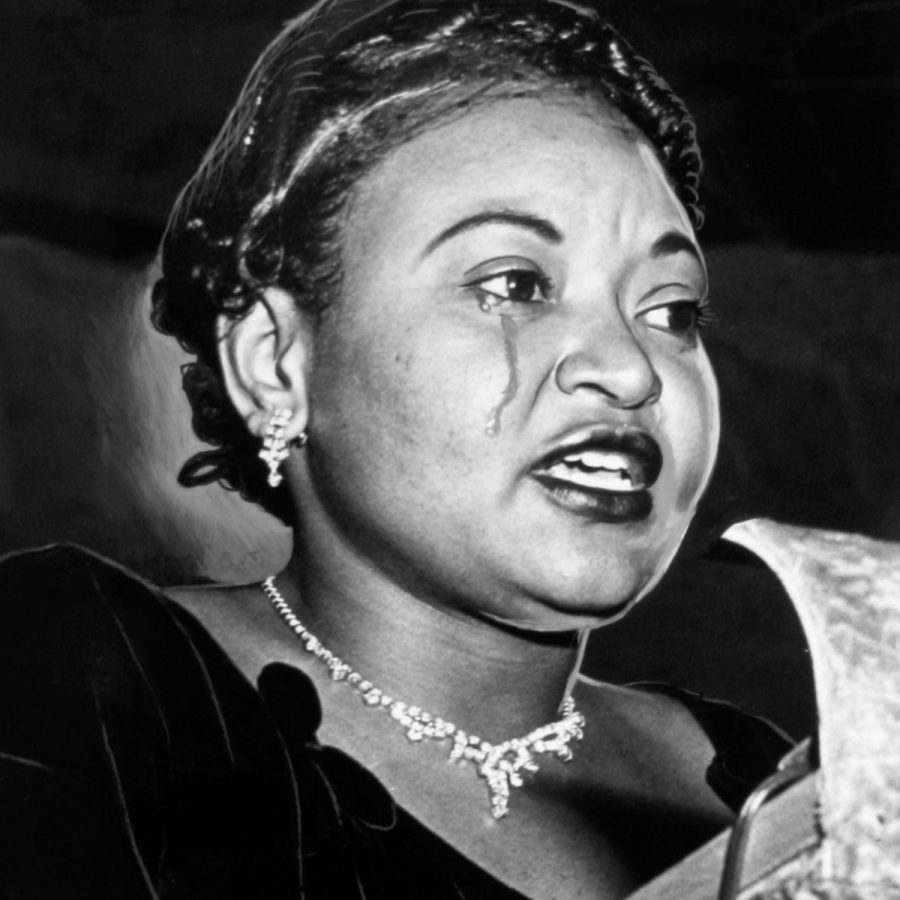Celebrating Women – Mamie Till Mobley, an American mother, an American warrior
Through the years of 1921-2003 lived a strong and inspiring woman, Mamie Till. Mamie Till, mother of Emmett Till, was an educator, activist but above all she was a devoted mother.
Emmett Till’s story is known around the world. He was a 14 year old Black boy visiting the south, where he was tortured and lynched after being accused of offending a white woman in her family grocery store.
Mamie Till made the powerful choice to have an open casket funeral and inadvertently kicked off the Civil Rights Movement in the fifties. It was a strong decision to keep the casket open to show the nation the mutilation of her young son’s body – to show the nation what white men had done to her only son to the point where she could barely identify the body. She spent the rest of her life devoted to advocating and seeking justice for her son. Many people remember Emmett Till and his story, but we must remember the woman who made this all possible and advocated his story so hard, Mamie Till.
Mamie Carthan was born November 23 of 1921 in the town of Webb, Mississippi. She was born only two miles away from Sumner, where the trial of her future son would one day be held. Mamie was a good child and student and buried herself in her academic life especially after the divorce of her parents.
Mamie had a strict mother who pushed her to finish high school and, like any mother wanted,she wanted her only daughter to get married to a good man. Mamie was the first black student to make the honor roll, and the fourth black student to graduate from Argo Community High School.
When Mamie turned 18 she met her soon to be future husband, Louis Till. They met in Madrid, Missouri where he worked at an Argo Corn Company. He was popular with many women but had his eyes on Mamie.
Her parents disapproved of Louis saying he was too sophisticated for their daughter and at her mother’s insistence Mamie broke things off with Louis. However, Till was persistent and eventually won over Mamie’s heart and they married on October 14, 1940.
Nine short months later came their only child, Emmett Till, nicknamed Bobo. He was born in Cook County Hospital in Chicago, completely healthy.
Emmett Till would never know his father, who was shipped out to Europe as an Army Private. Mamie and Louis separated in 1942. Three years later she would receive a letter informing her without a full explanation that he was killed for “willful misconduct”.
In 1955, Mamie decided to go on vacation to Nebraska where some relatives of hers lived. She originally wanted her son to come with her, but Emmett was set on visiting his cousins and spending the rest of the summer in Mississippi. Little did she know that when she put her only son on that train going south, she would never see him alive again.
Emmett Till was brutally murdered in the hands of two white men for allegedly flirting with a white woman at a family owned grocery store four days prior. When Mamie finally found the body of her son she was horrified and distraught but determined that this would never happen again. Mamie made the powerful decision; Emmett Till would have an open casket funeral. She showed the world what had been done to her son. If she hadn’t we might not even know his story today.
“I said I want the world to see this because there is no way I could tell this story and give them the visual picture of what my son looked like,” Mamie said. She insisted on having an open casket funeral to show the nation what the brutality towards Black people in the south looked like at the time.
What was supposed to be an incident to “keep blacks in their place” ignited a movement. Just a few months later, Rosa Parks refused to give her seat and sit in the back of an Alabama bus. She said it was Emmett Till’s face she saw when refusing. Four days later the Montgomery Bus Boycott started and Martin Luther King Jr. summoned his memory during the entirety of the protest.
Unfortunately Mamie did not get justice with the Mississippi verdict and the murderers were let off. However for the rest of her life she took her fight to the public and was a big factor in the launch of the civil rights movement.
Almost 70 years later, Emmett Till’s story is still remembered but whilst we honor him and tell his story we must also honor the woman who made this all possible.
“With each day, I give thanks for the blessings of life—the blessings of another day and the chance to do something with it. Something good. Something significant. Something helpful. No matter how small it might seem. I want to keep making a difference.” – Mamie Till Mobley

My name is Danielle Oliveira, I am a senior in Journalism II. I chose to take a second year of Journalism because I enjoy being up to date on current events...














Emily Sturtevant • Mar 19, 2021 at 8:00 am
Love your article, Danielle! Mamie was an amazing woman and deserves more recognition!